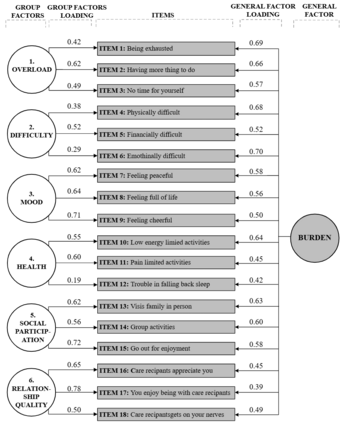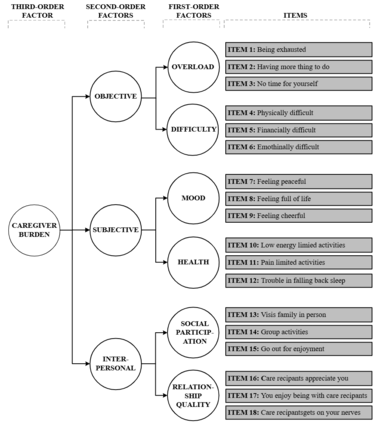Informal caregiving often carries a significant emotional, physical, and financial toll, yet caregiver burden is often underrepresented in healthcare research and methods. Existing caregiver burden instruments, while valuable in clinical research, often lack compatibility with observational datasets regularly used in health services research and planning. This study introduces the Caregiver Burden Index (CareBI) developed for the National Study of Caregiving (NSOC), that can be used to represent caregiver burden in quantitative models and observational research studies. CareBI was developed and validated using a multistep process that included the identification and preparation of individual NSOC survey items, exploratory and confirmatory factor analysis, score estimation, interpretation, and external validation. The study used data from round 12 of the NSOC. CareBI represents three domains of burden: objective, subjective, and interpersonal, providing a comprehensive view of both the positive and negative aspects of caregiving. It also aligns with the Zarit Burden Interview, a widely used tool for prospectively assessing caregiver burden. Construct validity was assessed by comparing CareBI's relationship with caregiver and care recipient outcomes, as well as sensitivity to known burden-related risk and mitigation factors. Early findings affirm the scale's utility in categorizing low-, moderate-, and high-burden caregivers and guiding resource-oriented strategies. CareBI represents a reproducible tool for embedding caregiver metrics into health operations, predictive modeling, and public policy frameworks, and provides a template for applying operations research and industrial engineering methods to psychosocial measurement challenges in aging and long-term care.
翻译:暂无翻译










